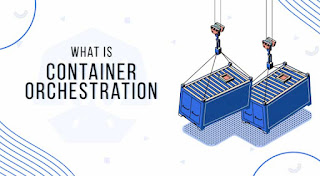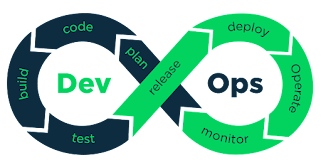What is Container Orchestration in DevOps?
What is Container Orchestration in DevOps?
DevOps CertificationContainer orchestration automates much of the operating effort needed to run containerized workloads and services. It is a method of handling and organizing multiple containers and microservices architecture at scale. Container orchestration solves the problem by automating container scheduling, deployment, scalability, load balancing, availability, and networking.
Why Container Orchestration?
Consider four applications run in the same language, server and operational system. You are an administrator trying to deploy manually, scale, and improve the whole system’s security to ensure everything is on track. It may sound straightforward, but what about when hundreds or thousands of containers run from public clouds to local servers, respectively? That’s a different scenario.
Hence for this very reason, scaling containers across the business is a painful task without automated tools for processing, allocation, and security. Container orchestration was devised for this exact reason. The entire job is automatically accomplished without human intervention, so the challenge of scaling enterprise applications is conducted efficiently.
Because containers are temporary and lightweight by nature, driving them in production can fast become a massive effort. Particularly when paired along with microservices that run in their containers—a containerized application might convert into operating hundreds or even thousands of containers, particularly when using and building any large-scale system.
This can introduce substantial complexness if managed manually. Container orchestration makes that operational complexity manageable for development and operations—or DevOps—because it equips a declarative way of automating much of the work. This makes it a right fit for DevOps culture and team, which generally operate faster than conventional software teams.
Advantages of Container Orchestration in DevOps
Container orchestration is key to operating with containers, and it enables organizations to unlock their full advantages. However, it also offers its advantages for a containerized environment, including:
- Streamlines and speeds operations- Containers are complicated and tricky to manage, making it difficult to control the system without container orchestration. This is one of the primary reasons why organizations embrace this method.
- Increases resilience- Container orchestration tools can automatically restart or scale a container or cluster, increasing resilience.
- Boosts portability- Container orchestration only scales special functions of the application without altering the complete system.
- Enhances security- Container orchestration’s automated method keeps containerized applications secure by decreasing or eliminating the chance of human error.
Tools to Use for Container Orchestration
Kubernetes
Kubernetes is the most influential player in the container orchestration market. The Google-backed solution overwhelms the market and quickly becomes the gold standard in container orchestration. Kubernetes enables DevOps practitioners to provide cloud services as either Platform-as-a-Service (PaaS) or Infrastructure-as-a-Service (IaaS). An excellent example of implementing Kubernetes container orchestration is Katalon TestOps which creates an innovative serverless solution for constant testing.
Features-
- Automated rollouts and rollbacks
- Horizontal scaling
- Service discovery and load balancing
- Storage orchestration
- Self-healing
- Batch execution
- Secret and configuration management
Docker Swarm
Docker Swarm is more specific and less comprehensive than Kubernetes, making it suitable and precise for software development teams. However, Docker also provides integration with Kubernetes as an added service to complete its product portfolio.
- Cluster management integrated with Docker Engine
- Decentralized design
- Load balancing
- Secure by default
- Desired state reconciliation
- Multi-host networking
- Declarative service model
- Scaling
Minikube
Minikube enables users to operate Kubernetes locally. With the help of Minikube, you can test applications locally inside a single-node Kubernetes cluster on your personal computer. In addition, Minikube has integrated support for the Kubernetes Dashboard.
Minikube operates the latest stable release of Kubernetes and sustains the following characteristics.
- Load Balancing
- Multi-cluster
- NodePorts
- ConfigMaps and Secrets
- Enabling CNI (Container Network Interface)
- Persistent Volumes
- Container Runtime: Docker, CRI-O, and containered
Nomad
Nomad is a flexible, simple, and straightforward workload orchestrator to deploy and handle containers and non-containerized applications across on-prem and clouds at scale.
It runs as a single binary with a small resource footprint (35MB) supported on macOS, Windows, Linux. In addition, nomad automatically recovers applications from failures.
Features-
- Easy & Reliable
- Easy Federation at Scale
- Proven Scalability
- Modernize Legacy Applications without Rewrite
- Multi-Cloud with Ease
- Native Integrations with Terraform, Consul, and Vault
Conclusion
With the development and popularity of the Cloud platform, container orchestration is skyrocketing. As an outcome, software development teams feel more hands-off, and handling containers are no longer believed to be a burden. Instead, container orchestration automates container deployment, management, scaling, and networking.
You can use it in any environment where you use containers. It can assist you in deploying the same application across different environments without redesigning it. And microservices in containers make it simple to orchestrate services, including storage, networking, and security.


Comments
Post a Comment